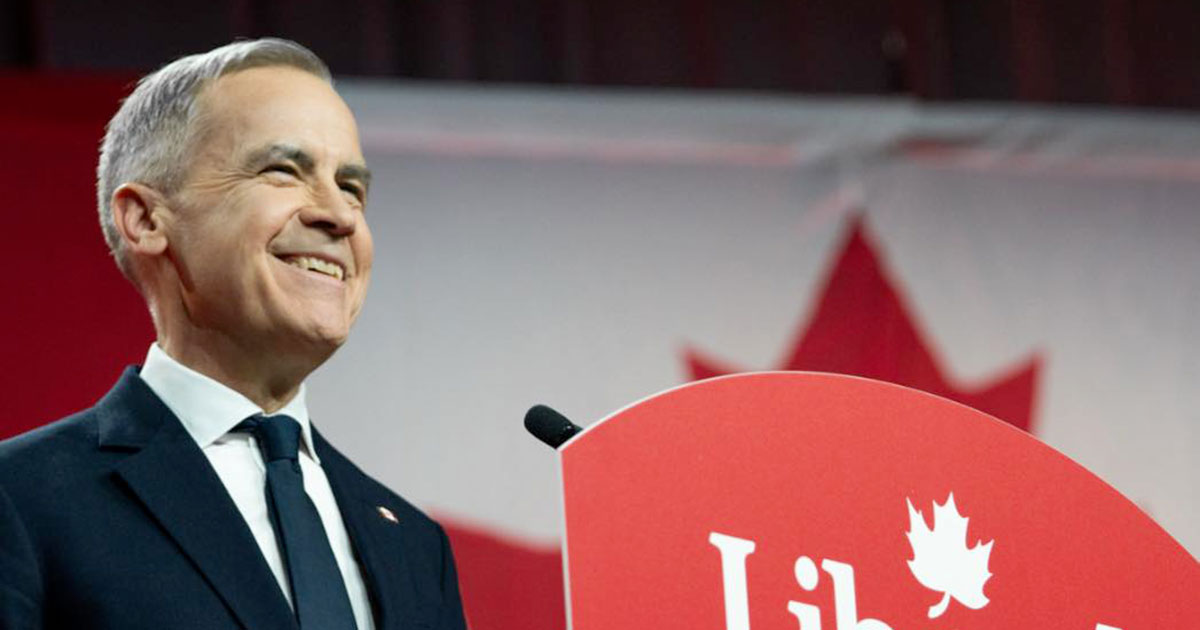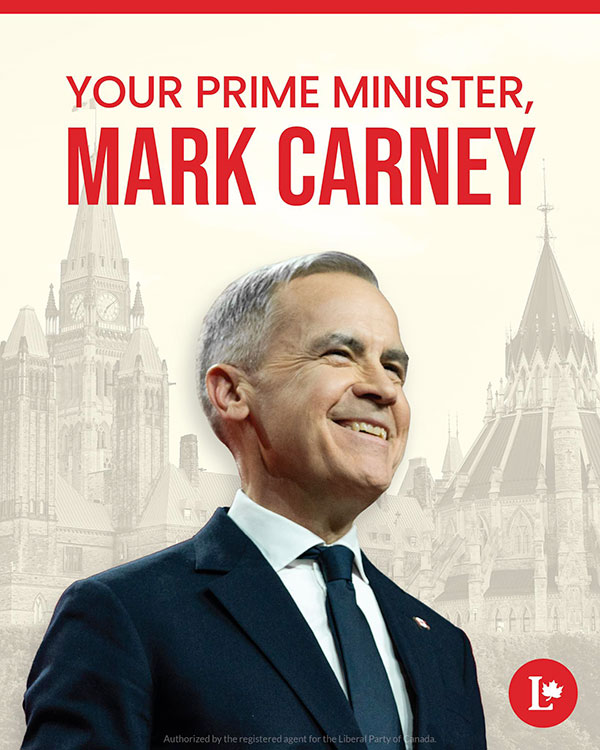New Prime Minister Mark Carney: What are Gentologie’s expectations?

With the Liberal Party of Canada elected to form Canada’s next government, a three-seat minority government with 169 seats, what can we expect from the New Prime Minister Mark Carney government? Here’s what we expect from this mandate at Gentologie. In the coming weeks and months we want to talk more about politics, because they shape what the gentlemen of tomorrow will be. And remember, if you don’t care about politics, it will care about you anyway.
New Prime Minister Mark Carney: A gentleman’s side?

Mr. Mark Carney
Photo: Liberal Party of Canada Facebook Page
While this is often the case with the Liberals, the gentlemanly side is important. In our view, the gentlemanly side consists of taking care of the less well-off, developing health policies, favouring a public broadcaster—in short, putting in place a number of measures likely to move society forward.
Although these initiatives are less ambitious than those of the NDP (New Democratic Party), they often enable the two parties to reach a consensus and pass bills. Although Mark Carney is probably a millionaire, he must remember that most of the Canadians who elected him are not in the same financial situation as he is. Above all, he does not have a majority, so he will have to find allies to adopt the measures included in his programme.
Putting the DEI back on the map
While the post of Minister for Women and Gender Equality Canada disappeared from his first cabinet when the new Prime Minister Mark Carney was not elected, he will have to bring back the DEI (Diversity, Equity and Inclusion), the three principles established to promote inclusion and combat discrimination against historical minority or minority groups.
These principles were rejected south of the border by an Order in Council, putting an end to their application in all spheres of the federal government as you can read in this article of the National Post. I hope that won’t be the case in Canada, a country that is known for welcoming people who are perceived as different elsewhere. Here, everyone can be who they truly are.
Increasing the Presence of Women in Cabinet
While many women have unfortunately not been elected or re-elected, let’s hope that the next Carney cabinet will be egalitarian, even if it will be difficult. Men have everything to gain from having women at their side. Women have their place in politics, given that they make up half of the Canadian population and the various policies put in place affect them as much as us, dear gentlemen. Think of strong women like Mélanie Joly, Karina Gould, Nathalie Provost and former Finance Minister Chrystia Freeland, who will no doubt have their say in this cabinet.
Dismantling Provincial Economic “Borders”
We’ve been talking about this since the beginning of the tariffs, but Canada needs to behave like a country, not 13. It’s ironic that it’s easier to order alcohol between the various countries of the European Union than between Québec and Ontario for wines made here in Canada, or with Alberta for whiskies. Again, these are just two examples. We need to work together to grow our economy.
The Environment: Still at the Heart of the Future Canada
The environment is one of the issues causing a stir, especially the carbon tax. Unfortunately, this was put on the back burner when the new Prime Minister, Mark Carney, took office a few weeks ago. A number of people have also talked about the revival of pipeline projects. Unfortunately, these are not projects that will make Canada an environmental leader. It’s ironic that Mr. Carney was the United Nations Special Envoy for Climate Finance.
We hope that, in his new role as Prime Minister-elect, he will take into account Canada’s climate challenges, such as the forest fires in Alberta and British Columbia, and the erosion of certain reefs in the Atlantic provinces and eastern Québec due to increasingly strong tides.
Public transport: growing Canada’s cities and economy
The age of the solo car cannot persist under the leadership of Prime Minister Mark Carney, even if it is electric. More cars, more traffic, it’s a simple calculation. A bus can seat 70 people, but a large SUV can only carry 7 passengers (not including luggage). Now consider 70 SUVs with just one person on board. How many metres would it take (if you don’t want to work it out, I’ll tell you quickly: the average length of an SUV is 4.7 metres, multiplied by 70, you get almost 330 metres)?
It could also put forward policies to encourage car sharing, subsidize car-pooling, add funding for car sharing and encourage manufacturers to set up “car-sharing-rental” initiatives (imagine being able to subscribe to BMW Auto [fictitious name], a service similar to Communauto, but for BMW [or any other manufacturer], which would be offered wherever on the planet you travel or where you live), in short, try to change the view that everyone must own a car.
For this reason, the plans for a tramway in Québec City and a high-speed train between Québec and Windsor must be at the forefront of infrastructure investment, and construction must start now, not forgetting the structural transport project in the east of Montréal. Not to mention the renewal of VIA Rail’s fleet for other corridors, such as the West and the Atlantic (we’re a long way from the luxury of Belmond here, even if the trains are newer).
French must be more than just a seductive accessory for Canada’s New Prime Minister Mark Carney
Although it’s not Prime Minister Mark Carney’s number one language, he must show that it interests him and be able to converse with all citizens without a teleprompter or words in his ear. More presence in the French-language media, on the radio and, above all, in speeches. If the other English-speaking party leaders can speak the country’s two official languages, our Prime Minister must be able to do so naturally.
At the same time, he should replace Governor General Mary Simon, who doesn’t seem to be showing any improvement in this skill necessary to her office and who is a disgrace to francophones across the country.
Health: because some provinces, like Québec, don’t look after it
Although Yves-François Blanchet, leader of the Bloc Québécois, cries out that health is a provincial jurisdiction, the Québec government was forced by Justin Trudeau’s federal government, largely because of the NDP, to set up a dental plan.
Québec has long resisted the idea of introducing this measure (which will come into effect in May for the ones aged from 18 to 65 with an income of less than $90,000 [as of May 15, 2025, for the 18–34 and May 29, 2025, for the 35–54]). It’s likely that Mr. Blanchet, whose ministerial salary is paid by a government he wants to abolish, doesn’t think it’s crucial that the residents of his province enjoy impeccable oral hygiene, but for us at Gentologie, it’s essential.
And if, when we talk about health as a skill, we’re really talking about incompetence, we can see that François Legault’s government isn’t really making it a priority, not least because of the critical situation at Maisonneuve-Rosemont Hospital, which is still refusing to fund it, despite repeated requests from Health Minister Christian Dubé.
Here, then, are some of our expectations for the first mandate of the New Prime Minister of Canada Mark Carney.
